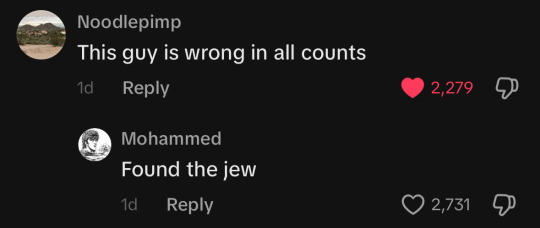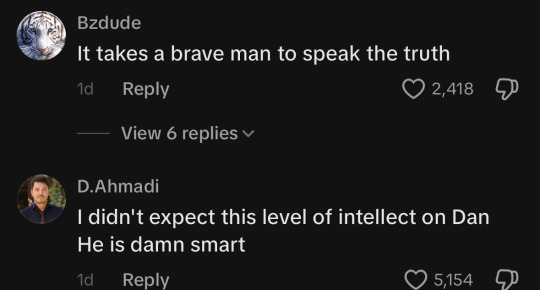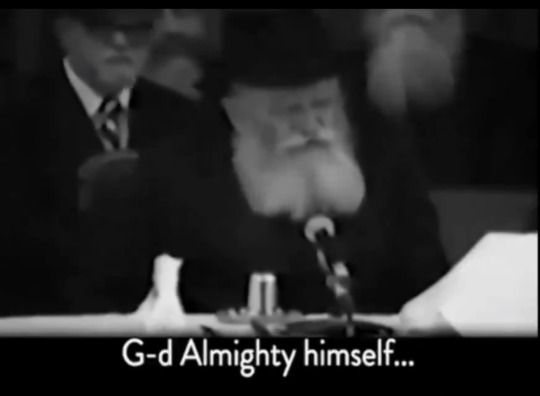#the talmud
Explore tagged Tumblr posts
Text

324 notes
·
View notes
Text
Now I don’t know if any other Jews have recently seen that Piers Morgan segment featuring “Dan Bilzerian” but oh boy…
I’m not one to call out antisemitism when it comes to politics revolving around Israel and Palestine, as I often feel it puts a bigger target on my back as a Jew-ish person (mind you the target is very much already there). However, the propaganda they have featured on this very large television station is absolutely appalling to me. Even looking at it on social media really just confirms how quickly everyone is to jump on the Jew hate train.
To remain down to earth, I’m obviously not that surprised as it is Piers Morgan… but the man featured has nazi rhetoric that he is able to throw to a larger audience, and they just eat it up.
I’m going to link the video here
It’s a bite sized clip but make of it what you will, I wouldn’t recommend watching if you’re already in a bad headspace about this situation



#jumblr#jewish#antisemitism#piers morgan#the talmud#american jews#palestine news#israel#free palestine
18 notes
·
View notes
Text



The talmud says that god gave the jews not only I the power to overcome the ways of the world but the power to overcome god himself. 🤮
@endcelebrationofignorance
#the Talmud#Talmud#Judaism#god#Jesus#jesus christ#Christianity#benjamin netanyahu#Israel#from the river to the sea palestine will be free#free palestine#palestine#free your mind#free gaza#gaza strip#bad religion#religion
22 notes
·
View notes
Text

#just started reading The Artists Way#the talmud#reading#spirituality#spiritual awakening#the artists way
2 notes
·
View notes
Video
youtube
Talmud teaches an EVIL jewish tradition
1 note
·
View note
Text
Suddenly a man dressed in a black cassock stumbles in, walking on high stilts while singing a song without words, a song that sounds like a humming “ay-ay-ay-ay” or like “shiri-bim-bom-bom” and which soon turns into the well-known and most popular song about the rabbi who invites a freethinker to his table in order to mock this “philosopher” for his interest in steam- ships and air balloons; such worldly inventions and devices don’t attract the pious rabbi, who himself, naturally, is able to walk on water and without difficulty climb up to heaven on his own—and the gloomy everyday life is transformed into a fantastic play where everything is as possible as impossible, where the truth is a lie and the lie true, where everybody can perform any miracle whenever and wherever, where one madness after the other is as possible as probable, and where the man who is walking with his head in the clouds—der Luftmensch—is the one who stands more firmly on the ground than anybody else, happy and unhappy at the same time, a realist and a dreamer, skeptic and visionary, a man who sees the logic in the madness and the madness in the logic, the man for whom the relationship with the absurd is a way of living and for whom absurdity itself is the ultimate meaning of life, just as Sholem Aleichem cites the Talmud: “Askakurdo dimaskanto dikarnaso disfarsmakhto.”
— Tom Sandqvist, Dada East: The Romanians of Cabaret Voltaire, (2006)
#Finnish#Tom Sandqvist#Dada East: The Romanians of Cabaret Voltaire#(2006)#Sholem Aleichem#Solomon Naumovich Rabinovich#The Talmud
2 notes
·
View notes
Text
youtube
6 notes
·
View notes
Text
Isn't that antisemitism to want to kick out all the Jews? It is the Talmud not the Koran that wants to kill you if you are of a different race or faith. The Talmud teaches doing to all non Jews the same as the Zionists are doing to the Palestinians.

43 notes
·
View notes
Text
If you’re not Jewish, you can kindly shut the fuck up about the following:
The Talmud
Zionism
What is or is not antisemitism
The word “goy/goyim”
Jumblr: Feel free to add more.
1K notes
·
View notes
Text
If one could speak of Biblical verses as being vilified, then "an eye for an eye" would be the most vilified verse in the Bible. It is commonly cited to "prove" the existence of an "Old Testament" ethic of vengeance, and then contrasted with the New Testament's supposedly higher ethic of forgiveness. "An eye for an eye" is often associated with modern Jews as well, and invariably in a pejorative manner. Israel's critics, for example, commonly accuse her of practicing "eye for an eye" morality when she retaliates against Arab terrorist acts.
In actuality, the biblical standard of "an eye for an eye" stood in stark contrast to the legal standards prevailing in the societies that surrounded the ancient Hebrews. The Code of Hammurabi, a legal code hundreds of years older than the Torah, legislated retaliation even against innocent parties. Thus, if A constructed a building for B, and the building collapsed and killed B's daughter, then A's daughter was put to death (Law number 229). The biblical law of "an eye for an eye" restricted punishment solely to the perpetrator. Furthermore, unlike Hammurabi's code, one who caused another's death accidentally was never executed.
"An eye for an eye" also served to limit vengeance; it did not permit "a life for an eye" or even "two eyes for an eye." The operative biblical principle was that punishment must be commensurate with the deed, not exceed it. Blood feuds and vendettas were long practiced among the Israelites' neighbors - indeed, they have persisted in the Middle East until this century - and revenge was often carried out without restraint.
Christian often contend that Jesus went beyond the standard of "an eye for an eye," that he advocated forgiveness and saw retaliation as unworthy of man. Yet the New Testament records Jesus saying, "But the one who disowns me in the presence of men, I will disown in the presence of my Father in heaven" (Matthew 10:33). In other words, Jesus seems to advocate treating others as they have treated him; a standard of justice that is perfectly commensurate with the demand of "an eye for an eye."
In the time of the Talmud, "an eye for an eye" was not carried out literally, and Orthodox Jewish scholars teach that it was never practiced. The Talmud's rabbis feared that the very process of removing the perpetrator's eye might kill him as well, and that, of course, would be forbidden (Bava Kamma 84a). "An eye for an eye" was therefore understood as requiring monetary compensation equivalent to the value of an eye. The same understanding was applied to almost all the other punishments enumerated in the same biblical verse, "a tooth for a tooth, a wound for a wound."
The only punishment in this set that was not converted to a monetary fine was capital punishment for murderers, "a life for a life." Because the Torah believed that premeditated murder deserved the death penalty, there was obviously no fear of punishing the killer excessively. Jewish law did dictate, however, that murderers be executed in the quickest manner possible. Hence, later Jewish law forbade the Roman punishment of crucifixion.
Torah law also forbade remitting a murderer's sentence with a monetary fine. Life and money, according to the biblical ethic, are incommensurate; one can never atone for murder by paying money. In this regard, too, Torah law differed from the laws of the ancient Jews' neighbors, which would sometimes fine those who had murdered people belonging to a lower social class and which made certain property crimes (for example, looting at a fire) capital offenses. In Jewish law, property crimes could never be punished with death, and murderers could never be let off with payment of money, even if the family of the victim were willing to accept it (see Numbers 35:31, and Maimonides, Mishneh Torah, "Laws Concerning Murder," 1:4).
Both in its insistence that evil must be punished and in its equal insistence on setting limits to that punishment, "an eye for an eye" is a basic principle of biblical justice.
- Jewish Literacy, Rabbi Joseph Telushkin, pages 558-560
#jewish literacy#rabbi joseph telushkin#an eye for an eye#the bible#the talmud#judaism#jews and judaism#jumblr
36 notes
·
View notes
Text
An INTRODUCTION

Hello! This is just an intro to anyone who’s curious about this blog:
You can call me Rye, I’m 18 years old and this is my conversion blogggg.
I began my conversion process back in December. I live not in the U.S. so it’s been difficult to find a community to surround myself with. But I will be moving to the U.S. in the summer!
I still have yet to contact a rabbi as I am waiting till I move closer to a Jewish community.
Its been a very interesting few months in this journey but I’m very dedicated and I know I may still have years ahead of me which I’m gladly looking forward to.
Also, I just want to put out that I’m still learning and am just a kid, so if anyone has tips or suggestions on literacy or getting in contact with a synagogue or finding a community, IT WOULD BE VERY APPRECIATED.
#jewish conversion#the talmud#religion#jewish positivity#judaism#shabbat#intro post#introduction#hello tumblr
1 note
·
View note
Text




The talmud commands them to not spare any soul in their holy war. Man, woman, or child, none of them are innocent.
So when the USA ask for a “ cease-fire” that’s not what Israel’s plans are. 🤮
#Gaza#free your mind#free gaza#the Talmud#Talmud#Judaism#palestine#Israel#benjamin netanyahu#donald trump#kamala harris#joe biden#us politics#from the river to the sea palestine will be free
23 notes
·
View notes
Text

The lightest (i.e., least massive) known star, OTS 44 [3000 x 2400] :: [just--space]
* * * *
There are stars who's light only reaches the Earth long after they have fallen apart. There are people who's remembrance gives light in this world, long after they have passed away. This light shines in our darkest nights on the road we must follow.
The Talmud..
14 notes
·
View notes
Video
youtube
Shocker! What does the Talmud really say about Jesus? Was Joseph invente...
A different Jesus in the Talmud?
0 notes
Text
Makkot 16b:11 — Holding your pee is bad for your bladder and more importantly, prohibited

794 notes
·
View notes

